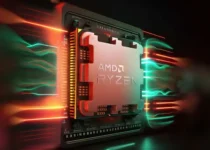Unmasking the Truth: Are Motherboard Screws Universal?
From the intricate tangle of wires to the mesmerizing array of circuitry, the inside of a computer is nothing short of a technological wonderland. But amidst this digital maze lies an often overlooked yet vital component: the humble motherboard screw.
These tiny pieces may seem insignificant in comparison to high-power processors and state-of-the-art graphics cards, but they play an essential role in securing one’s computing experience. In a world where every millimeter matters and precision is key, one might ask: are motherboard screws universal?
This article dives into the surprisingly complex realm of these little fasteners that hold your technology together. We will explore whether there’s any truth behind the claim that motherboard screws are universal or if it’s just another tech myth waiting to be debunked.
So buckle up for an enlightening journey through the nuts and bolts (quite literally) of your beloved computer system! And spoiler alert – no, not all motherboard screws are universally compatible.
Are Motherboard Screws Universal?
Motherboard screws are not entirely universal, as there are different form factors and sizes of motherboards that may require specific screw configurations. The most shared motherboard form factors include ATX, Micro ATX, and Mini ITX, each with its own set of mounting holes. While some screws may be interchangeable between these form factors, it’s crucial to use the screws provided with your motherboard or case to ensure a proper fit and secure installation.
Typically, motherboard screws are standardized for each form factor, but variations may exist. For example, ATX motherboards usually require standoffs and screws at specific locations, and the same goes for Micro ATX and Mini ITX. It’s important to consult your motherboard and case manuals to identify the correct screw locations and types.
In addition to form factor considerations, some specialty motherboards, such as server or industrial boards, might have unique mounting requirements. Therefore, it’s recommended to use the screws supplied with your motherboard or case to avoid compatibility issues and ensure the stability and reliability of your system.
Exceptions to The Rule: Non-universal Screws
While many motherboards adhere to standard screw configurations, there are exceptions and variations in certain cases. Here are a few instances where non-universal screws or mounting solutions may be encountered:
Proprietary Form Factors
Some manufacturers may design motherboards with proprietary form factors that deviate from standard ATX, Micro ATX, or Mini ITX layouts. In such cases, they might contain specialized screws or mounting mechanisms that are distinctive to their product.
Specialized Hardware
Motherboards designed for specific applications, such as industrial or embedded systems, may have non-standard mounting solutions. These might include alternative screw sizes, different standoff placements, or custom brackets to accommodate the unique requirements of those systems.
Small Form Factor (SFF) PCs
Mini PCs or small form factor systems often have compact designs that may not follow traditional mounting standards. Screws for securing motherboards in these cases might be different from those used in standard ATX cases.
Custom Cases
Some computer cases, especially those designed for enthusiasts or modders, might have unique mounting systems. Custom cases can deviate from standard layouts, requiring specialized screws or standoffs.
Server Motherboards
Motherboards designed for server applications may have different mounting requirements due to their size or intended use. Server chassis may use specific screws or mounting methods to ensure stability in rack-mounted environments.
Legacy Systems
Older motherboards or systems may have non-standard screws due to obsolete design practices. It’s vital to use the screws that come with the motherboard or case to sidestep compatibility issues.
How To Choose The Right Screw for Your Motherboard
The correct selection of screws is vital for a safe and steady setup of your motherboard. Usually, motherboards come with pre-made holes for mounting, and the matching screws are often provided in the motherboard’s package or with the PC case. The size and kind of screw are key factors to consider during selection. Most motherboards utilize either M3 or 6-32 screws – M3 being metric and 6-32 being imperial.
Check your motherboard and case specifications to determine the appropriate size. Additionally, choose screws with a flat or pan head design to ensure proper contact without causing damage. Avoid overtightening to prevent potential damage to the motherboard or the case. If in doubt, consult the motherboard and case manuals or seek assistance from the manufacturer’s support.
Implications of Using Incorrect Screws
Using incorrect screws for your motherboard can have various implications, potentially leading to hardware damage and operational issues. Here are some consequences of using the wrong screws:
Damage to Motherboard
The most immediate risk is the potential for physical damage to the motherboard. Incorrect screws may be too large or too small, leading to overtightening, stripped threads, or misalignment of mounting holes. This can cause stress on the motherboard, leading to cracks or other damage.
Short Circuits
Using screws that are too long may extend beyond the mounting hole and come into contact with circuitry on the motherboard. This can result in short circuits, potentially damaging sensitive electronic components and causing malfunctions.
Electrical Issues
Utilizing an inappropriate screw type might fail to ensure adequate grounding for the motherboard. This could lead to electrical problems such as unstable connections, signal disruption, or even total breakdown of some components.
Heat Dissipation Problems
Selecting the right screws is crucial to ensure optimal heat transfer between the motherboard and the case. If you use excessively long screws or insulating materials, it could obstruct efficient heat dispersion from key parts like the CPU or chipset, resulting in overheating and a drop in performance.
Final Thoughts
To sum up, it’s a misconception that all screws for motherboards are interchangeable. Sure, many may have comparable sizes and threads, but differences in length and head type can exist. Misusing these can cause harm to your equipment. Hence, it’s advised to stick with the specific screws provided by the manufacturer for your particular motherboard model. This guarantees a safe and secure fit for this crucial piece of hardware. The devil is in the details when it comes to tech; utilizing the right tools and parts can have a significant impact on your system’s performance and longevity.
FAQs
Will use the wrong screw damage my motherboard?
Yes, using the wrong size or type of screw could potentially cause damage to your motherboard.
Are standoffs and motherboard screws the same thing?
No, standoffs are used to elevate the motherboard from the case while screws secure it in place.
Where can I buy replacement screws for my motherboard?
Replacement screws can be purchased at computer hardware stores or online marketplaces like Amazon or Newegg.


